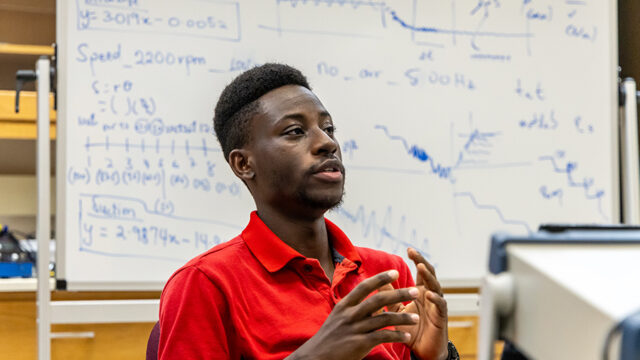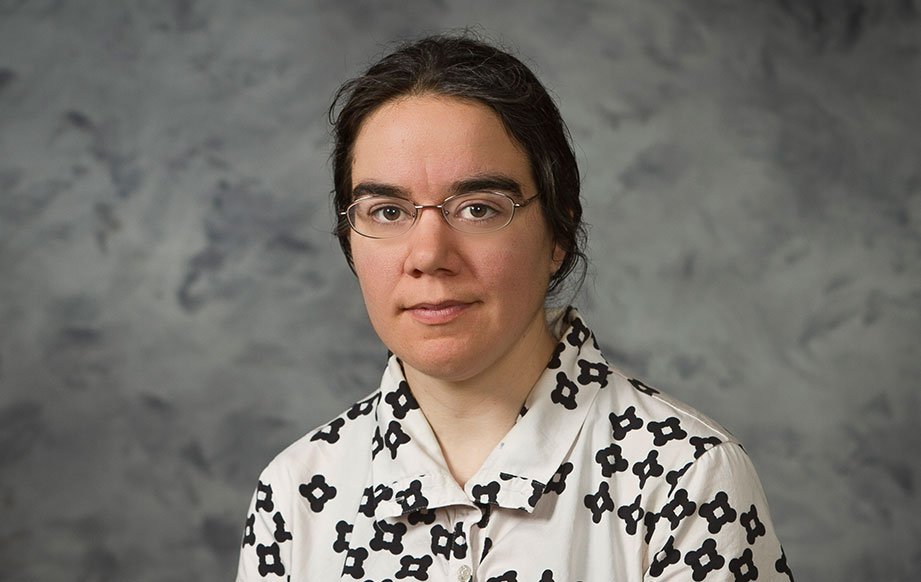Your path to becoming an engineer
BC’s bachelor of science in engineering prepares you for a challenging and rewarding career in mechanical engineering, robotics, aerospace, electrical systems and technology, and manufacturing. Through a curriculum grounded in real-world application, you will graduate with career-ready skills in 3D modeling, mathematics, computer-aided design (CAD), fabrication, electronics, control systems and mechanical design.
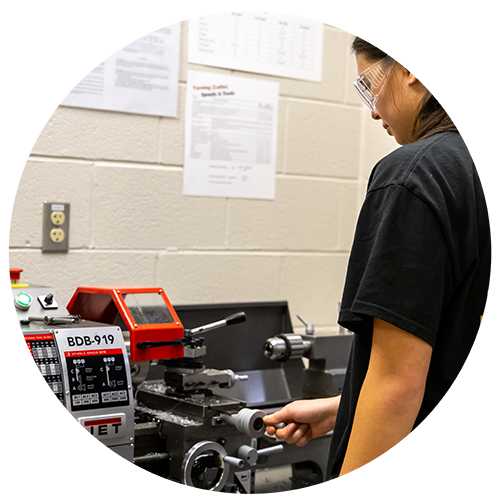
What to Expect in the Engineering Program
The program is designed for flexibility, giving you the opportunity to explore different aspects of engineering through your upper-level courses. The curriculum is aligned with standards set by the Accreditation Board for Engineering and Technology (ABET), ensuring a strong academic and professional foundation.
- Gain a strong foundation in mathematics, science and engineering.
- Choose an optional concentration in mechanical engineering or mechatronics.
- Learn in small classes that encourage collaboration with faculty and classmates.
Engineering Courses and Curriculum
Our engineering degree program lets you begin developing hands-on skills from the start. In your first year, you will take a two-semester Foundations of Engineering sequence that introduces you to professional tools in computer-aided design (CAD), with a focus on 3D printing and fabrication.
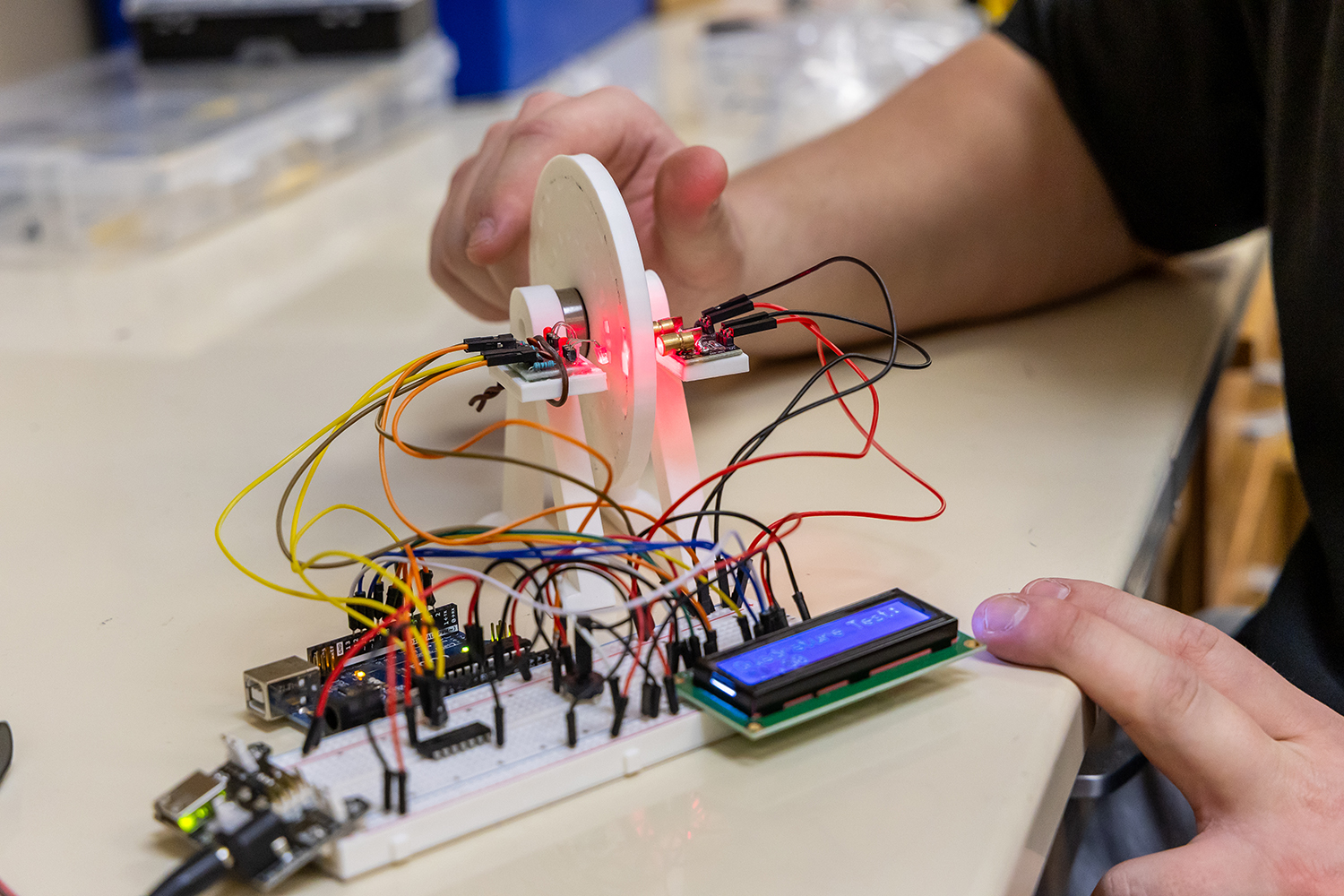
Innovative Labs
- Courses in electronics (analog and digital), control systems, signals, mechatronics
- Lab courses in mechanical engineering: materials and mechanical design
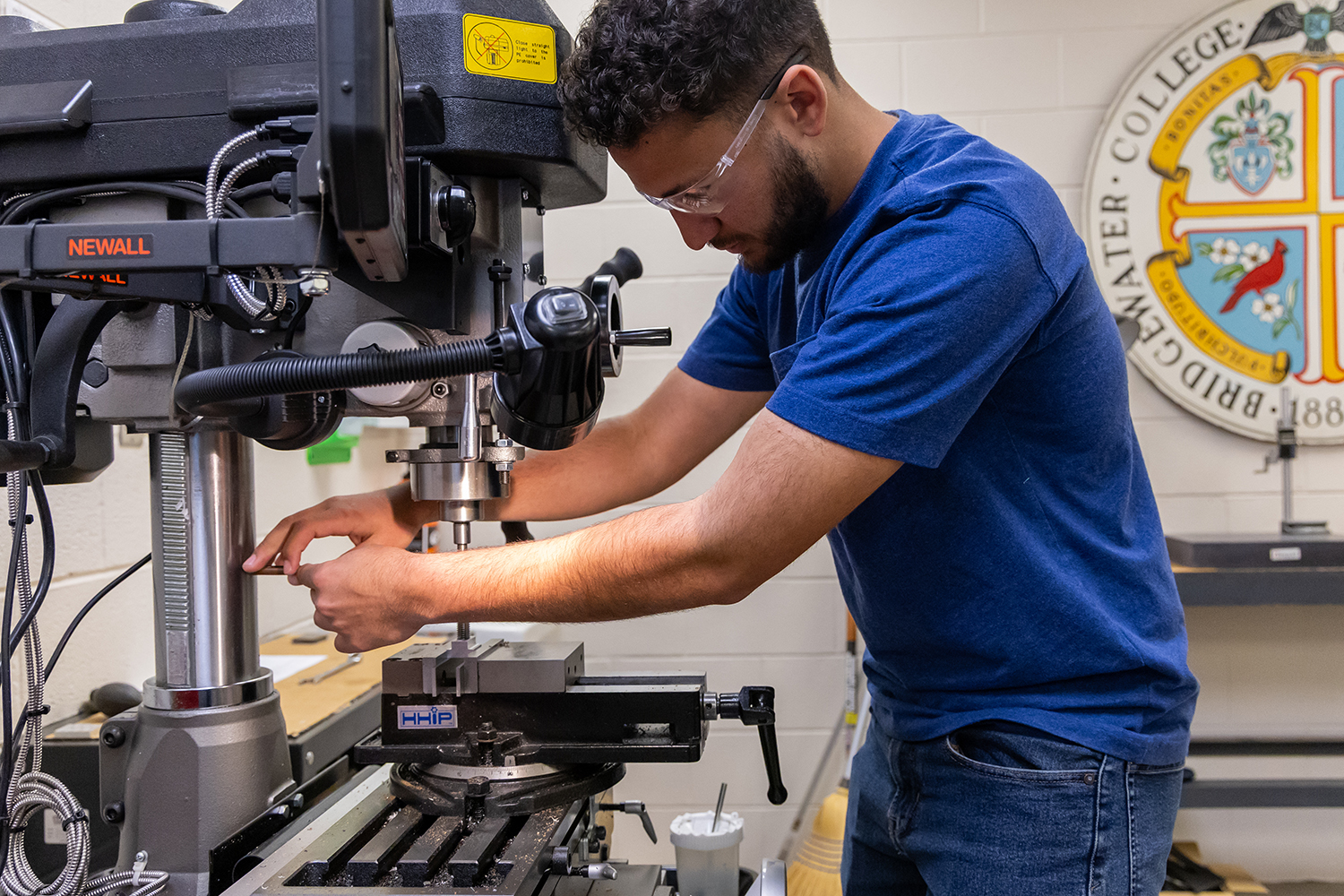
Advanced Engineering Theory Courses
- Upper-level theory courses appropriate for mechanical engineering: statics, dynamics, vibrations, heat and mass transfer, thermodynamics and fluid mechanics
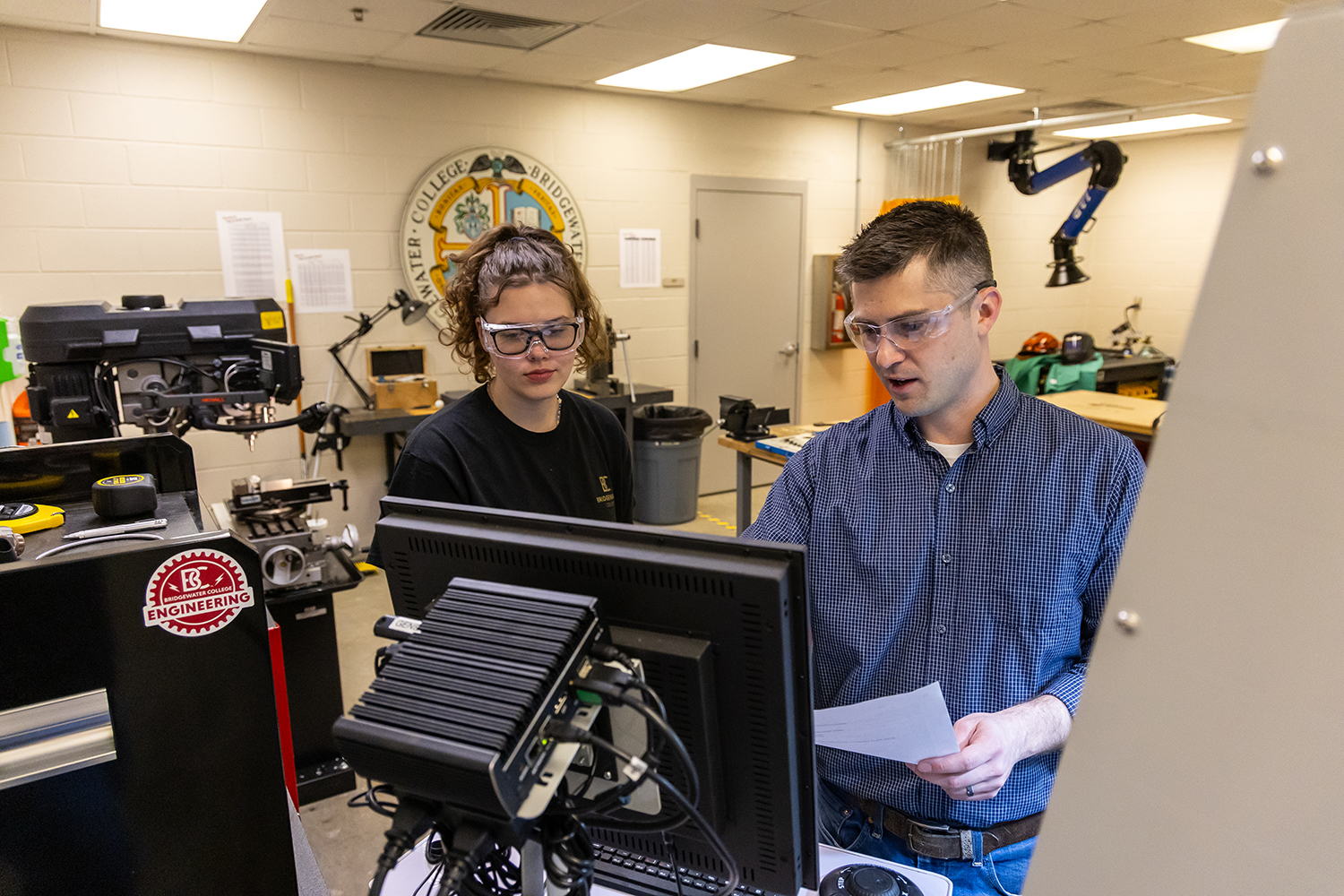
Hands-on Learning Experiences
- An integrative senior capstone experience featuring team-based, faculty-guided engineering projects
Required Courses Meet the Faculty
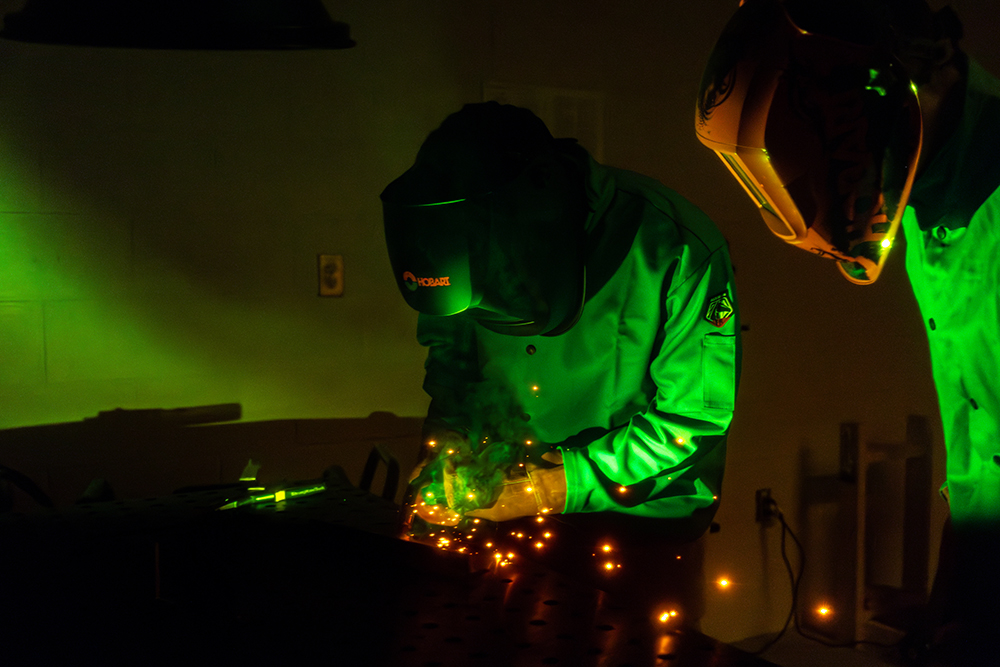
Engineering Labs and Facilities
Innovation Starts Here
Bridgewater’s cutting-edge engineering labs and facilities in the McKinney Center provide students with hands-on experience in design, prototyping, fabrication and mechatronics. Equipped with industry-leading software, advanced machining tools and 3D printing technology, these spaces support every stage of the engineering process. In these spaces, students collaborate, innovate, and bring ideas to life in a dynamic, real-world learning environment.
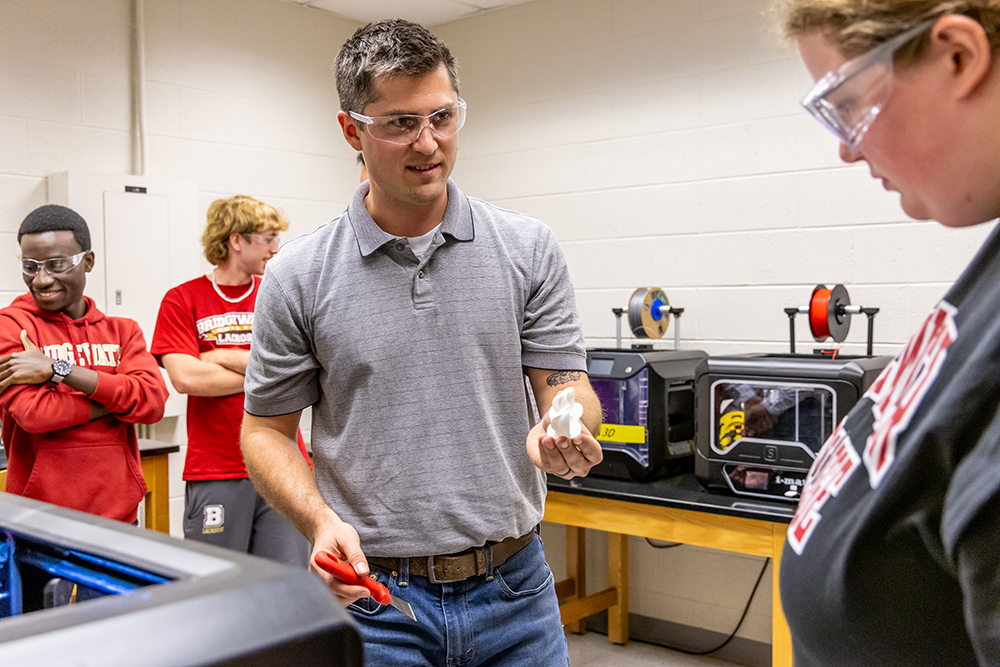
Practitioner in Residence- Engineering
Gene Stainback
Gene Stainback is the Practitioner in Residence for Engineering, dedicated to enhancing student learning through practical experience. He plays a pivotal role in:
- Guiding student capstone projects
- Facilitating hands-on learning in project-based courses such as Foundations in Engineering I and II
- Helping students develop skills in design and fabrication in our engineering lab spaces
Connecting you to your engineering future
The bachelor of science in engineering blends experiential and theoretical learning to give you the skills needed for your future career. You will be using professional tools and practices used in the discipline throughout the four years. By the time you graduate, you will have a strong foundation of critical thinking and problem-solving abilities as well as technical skills.
- Extend their broad foundation of knowledge and skills practiced throughout Bridgewater College’s liberal arts curriculum to succeed in engineering graduate study or industry.
- Apply and build upon their engineering coursework to solve current and future challenges in industry, government, and academia.
- Make ethical decisions within their technical expertise that holistically consider environmental, social, and economic impacts.
- Collaborate and communicate in an interdisciplinary team environment with both technical and non-technical stakeholders.
- an ability to identify, formulate, and solve complex engineering problems by applying principles of engineering, science, and mathematics.
- an ability to apply engineering design to produce solutions that meet specified needs with consideration of public health, safety, and welfare, as well as global, cultural, social, environmental, and economic factors.
- an ability to communicate effectively with a range of audiences.
- an ability to recognize ethical and professional responsibilities in engineering situations and make informed judgments, which must consider the impact of engineering solutions in global, economic, environmental, and societal contexts.
- an ability to function effectively on a team whose members together provide leadership, create a collaborative and inclusive environment, establish goals, plan tasks, and meet objectives.
- an ability to develop and conduct appropriate experimentation, analyze and interpret data, and use engineering judgment to draw conclusions.
- an ability to acquire and apply new knowledge as needed, using appropriate learning strategies.
Through rigorous coursework in mathematics, science, and engineering, our students are prepared for the challenge of practicing engineering in a world that needs highly qualified professionals with a commitment to social responsibility and ethical practices. Our program emphasizes professional responsibility, mastery of foundational knowledge and professional tools, and experiential learning. Students will gain practice in design thinking, fabrication and prototyping, and collaboration through hands-on projects.
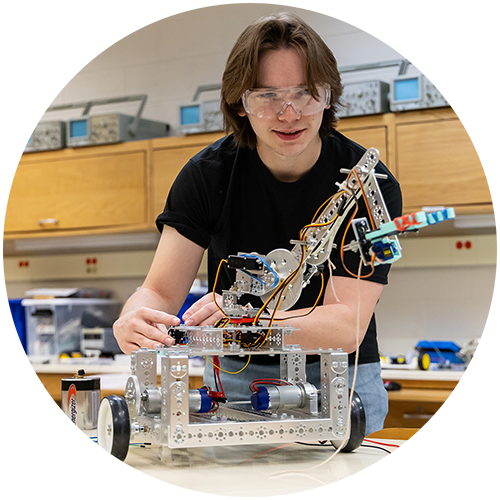
Careers with an Engineering Degree
BC prepares you to be a better critical thinker, professional and engineer. The environment and hands-on experience at Bridgewater provide you with the skills employers want.
- Mechanical engineering
- Automation engineering / mechatronics
- Nuclear engineering
- Aerospace engineering
- Automotive design
- Computer-aided design and 3D modeling
- Experience with computer-aided manufacturing
- Electronics skills with digital and analog circuit design
- Additive fabrication (3D printing)
- MATLAB
- Computer programming
- Leidos
- Boeing
- Northrup Grumman
- Lockheed Martin
- Dewberry
- Huntington Ingalls Industries, Inc.
Modern Engineering Labs Built for Hands-On Learning
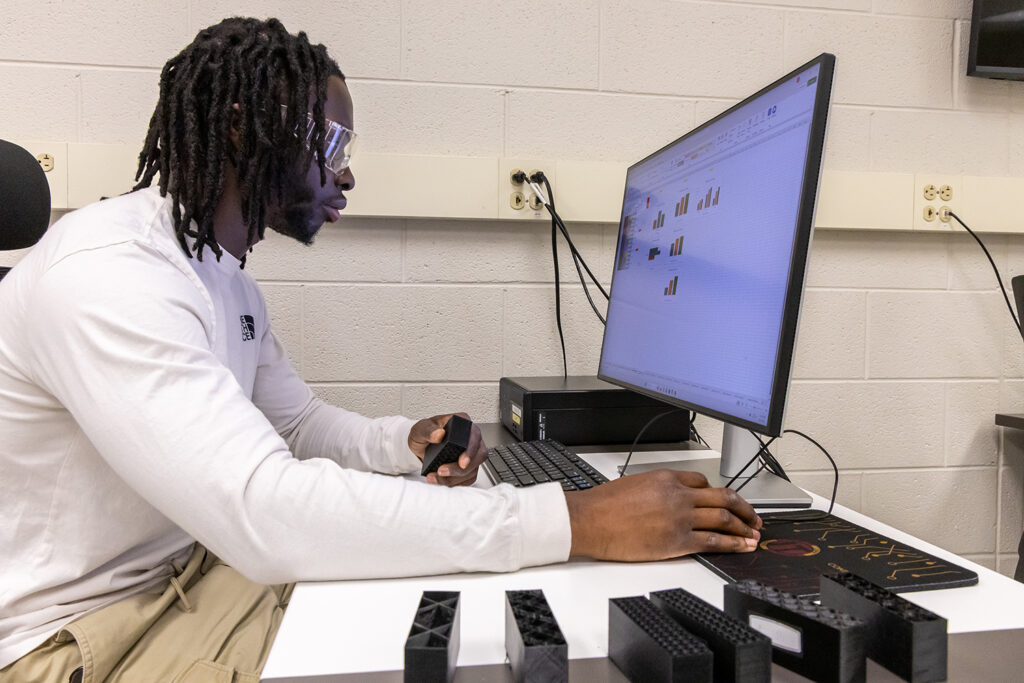
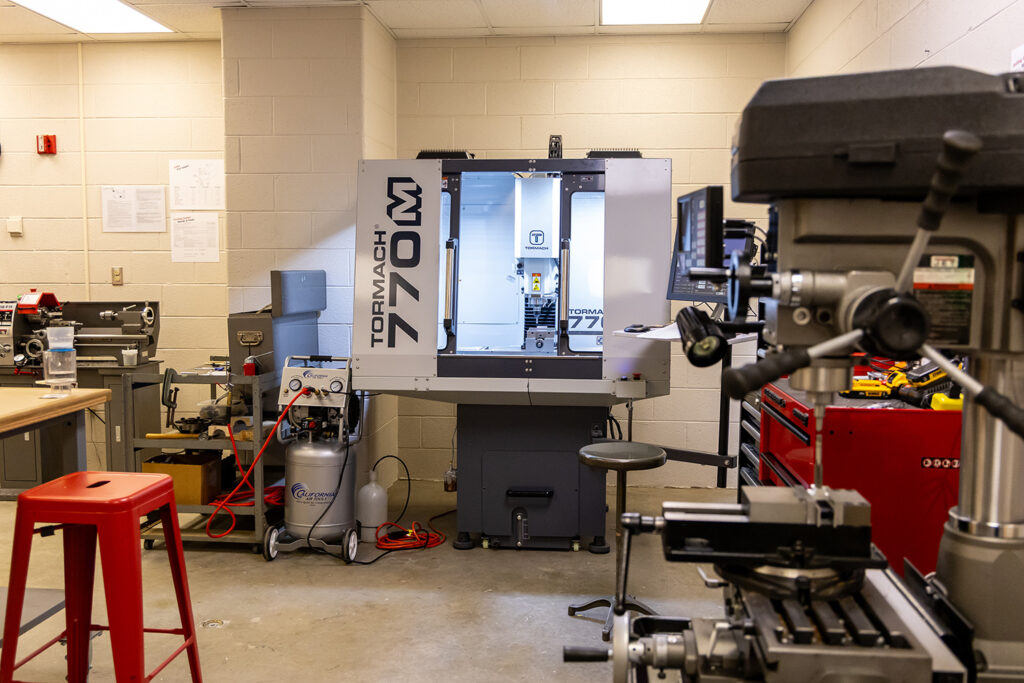
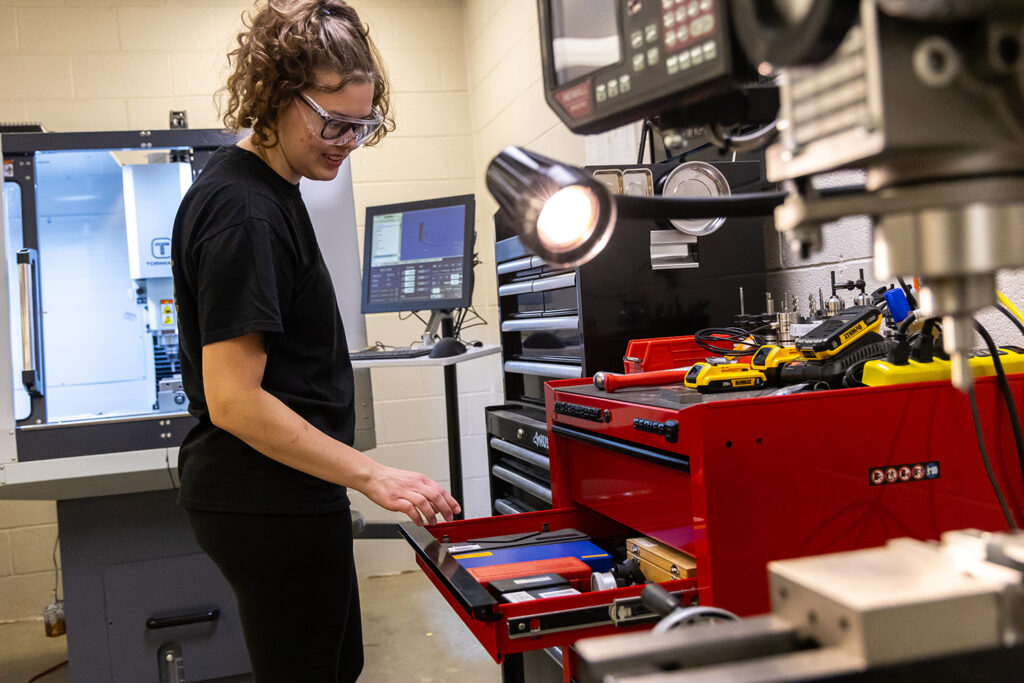
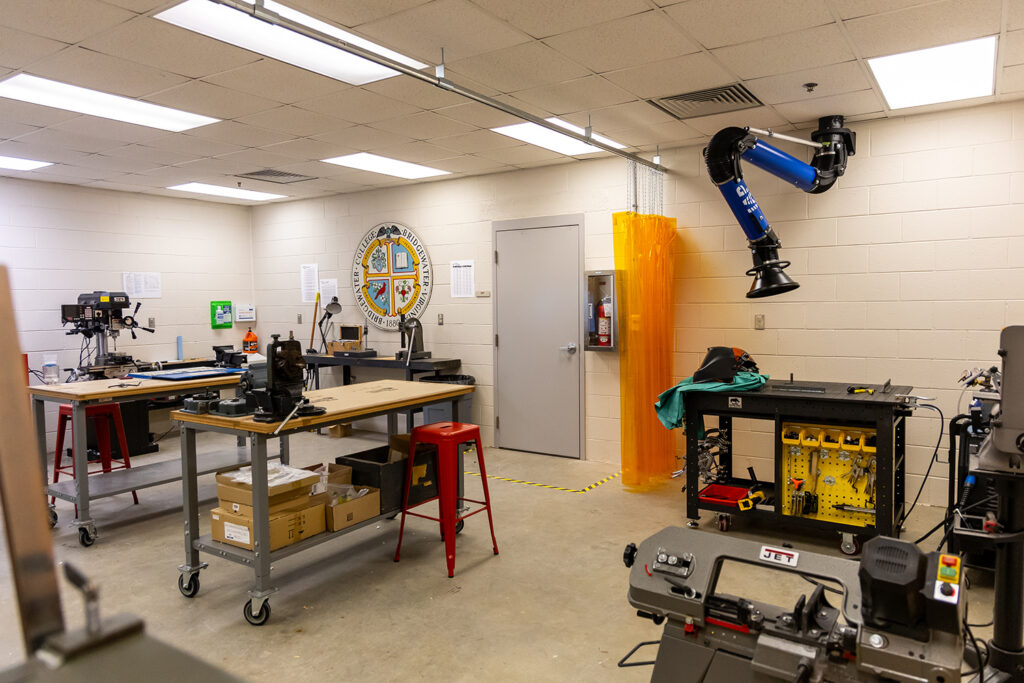
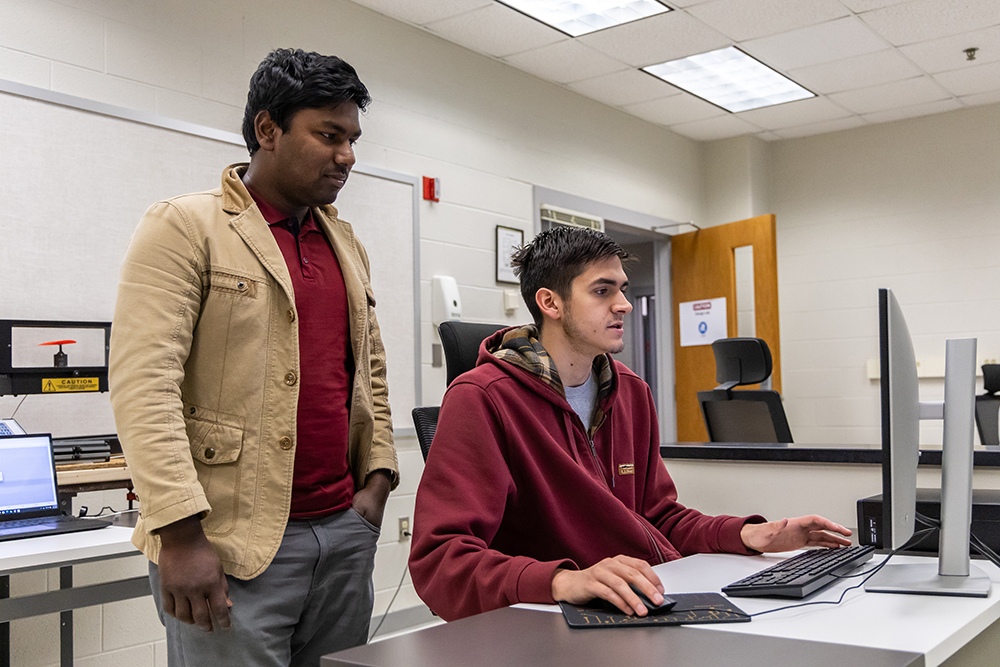
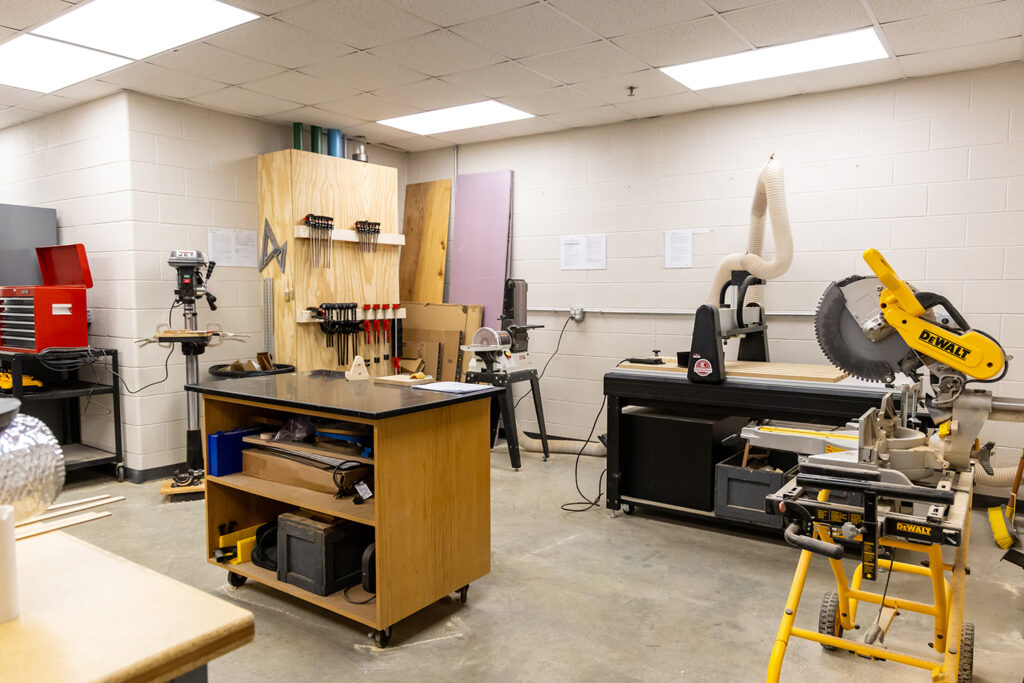
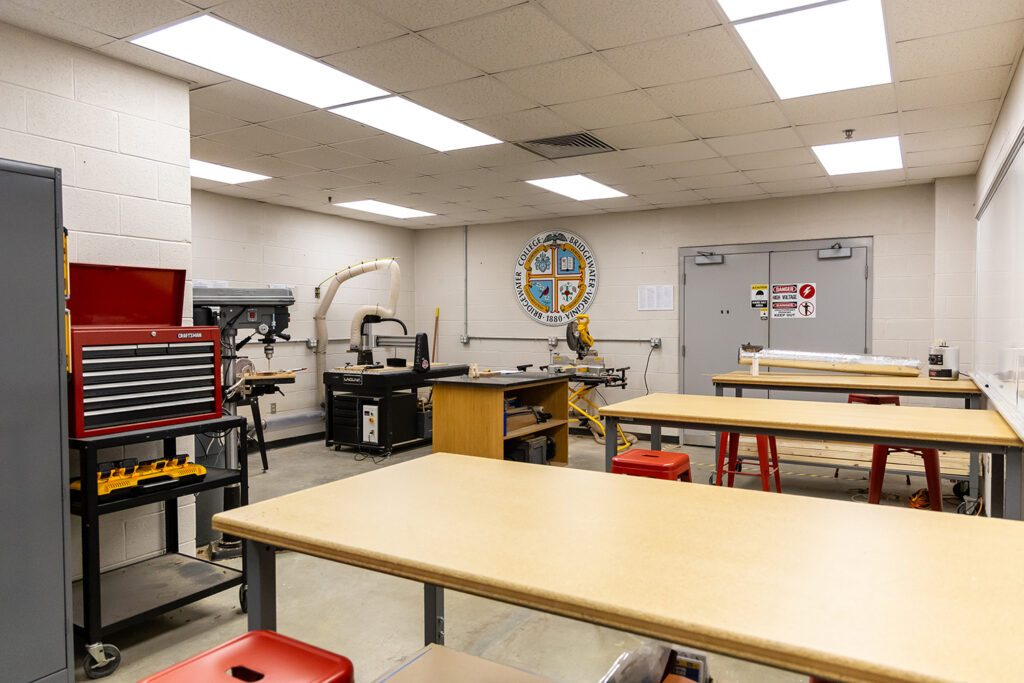
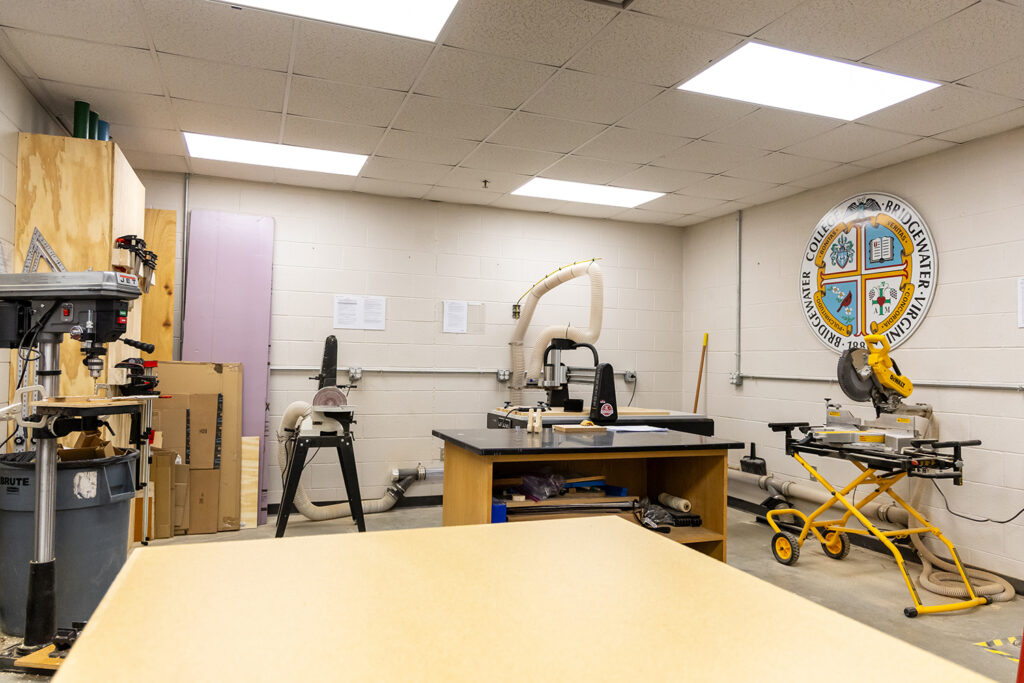
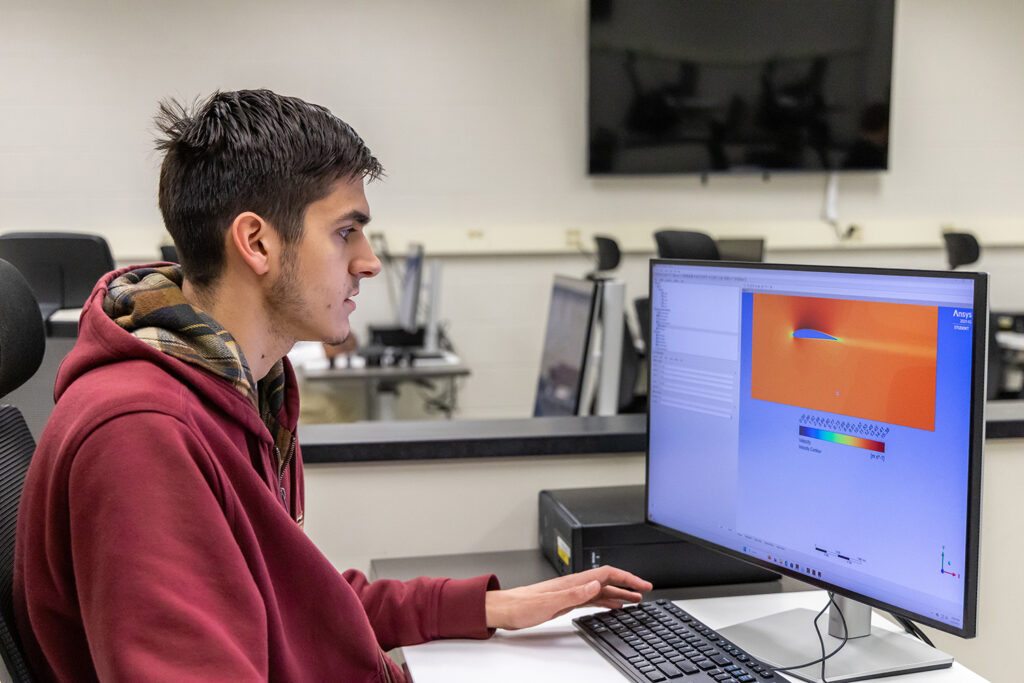
Questions? Contact Us!
- Dr. Deva O'Neil, Department Chair
- 540-828-8004
- doneil@bridgewater.edu
